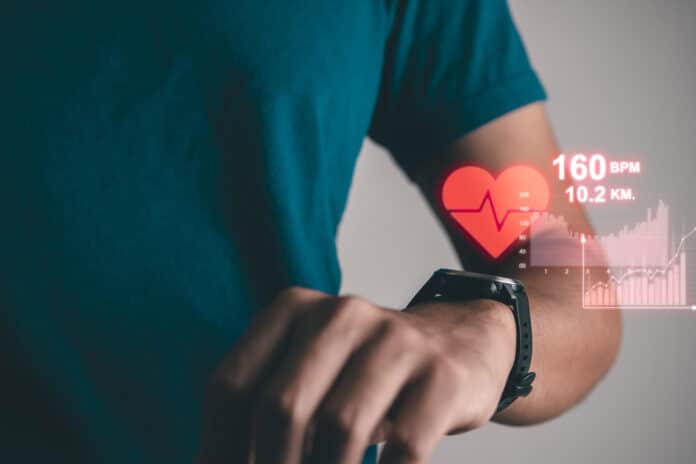Systolic heart failure, characterized by the heart’s inability to pump blood effectively, is a critical cardiovascular condition requiring prompt diagnosis and management.
Integrating AI with wearable devices offers a novel approach to real-time health monitoring, enabling the detecting of subtle physiological changes indicative of heart failure.
Wearable devices sometimes get unclear heart readings (ECGs), making it hard for computers to find heart problems. Yale’s heart medicine and computer science scientists made a particular computer program. This program can tell if there’s a heart problem called LVSD from the ECGs that wearables record.
Scientists at Yale University used several ECGs, about 385,601, to make the particular computer program. They trained it with noise added to the ECGs, like the kind you’d get from wearables.
The regular computer program and the special one worked similarly to normal ECGs. But when they tested them with the noisy ECGs from wearables, the unique program found LVSD much better.
Until recently, AI wasn’t as good at diagnosing heart problems using real-world wearable heart data as with hospital data. But now, researchers have found a way to improve AI with wearable data. It could help find heart issues earlier using devices people can wear.
The successful integration of AI and wearable devices for detecting systolic heart failure presents transformative healthcare possibilities. The ability to continuously monitor vital physiological parameters can lead to early detection, enabling healthcare professionals to implement personalized treatment plans before the condition exacerbates. This technology also empowers individuals to participate in their health management actively.
Incorporating artificial intelligence into wearable devices has the potential to revolutionize the field of cardiovascular health. The successful detection of systolic heart failure through AI-driven wearable technology underscores the importance of interdisciplinary collaboration between medicine, engineering, and data science. As these findings pave the way for further research and innovation, the future of healthcare holds exciting prospects for improved diagnostics, patient care, and overall well-being.
Journal Reference:
- Khunte, A., Sangha, V., Oikonomou, E.K. et al. Detection of left ventricular systolic dysfunction from single-lead electrocardiography adapted for portable and wearable devices. NPJ Digital Medicine. DOI: 10.1038/s41746-023-00869-w.
